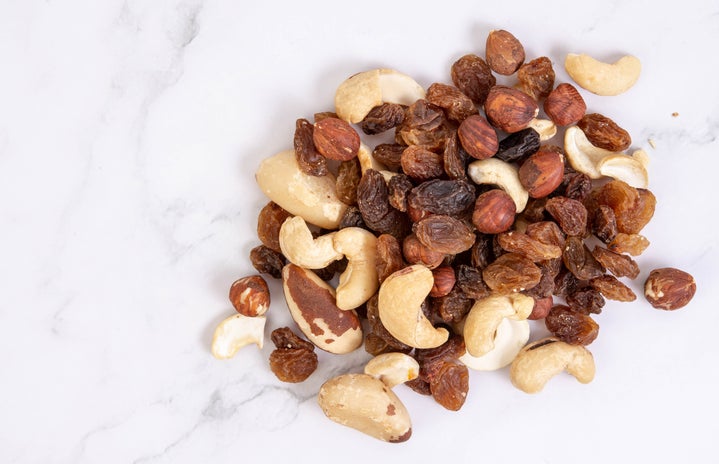Despite the bombardment of advertisements for workout programs, meal plans, and calorie counting apps that may come up in your media feed – you don’t need to restrict your eating in order to find balance and peace with your relationship with food. In fact, dieting only further complicates and degrades your relationship with food. So next time you are about to purchase a Keto Recipe book, a low-carb meal plan, or Noom (yes, even Noom is a diet, despite what their ads tell you!), think of all the reasons you’re better off not doing so. Here are only a few reasons to ditch dieting for good:
1. It’s not gonna work long term
If you haven’t already learned from experience, diets are practically impossible to stick to. But it’s not your lack of willpower that is to blame, the long term success rates of intentional weight loss are extremely low. Our bodies are equipped to retaliate against restriction and deprivation in the long term. Additionally, when we are focused on weight loss, our focus remains on our appearance and body size, rather than the quality of the relationship we have with our bodies and food. Eventually, we are left unfulfilled because we are so focused on our external.
2. It can harm you physically
Diets can lead to malnutrition, even when you think you are eating a “sufficient” amount. When you cut out food groups or drastically reduce your calorie intake, your body is not getting the vital nutrients it needs to function properly. This can lead to fatigue, digestive problems, and more severe issues long-term. Additionally, yo-yo dieting (going from dieting to overeating back to dieting) is known to damage metabolism and be detrimental to your health & longevity.
3. It’s expensive
$10/month FitnessPal subscription. $200/ three-week meal plan (for that price it should include the damn food!), $25/month Noom subscription. $60 sweat wraps. And the thousands of extra-cost food “swaps” so many diets require you to do in order to stay quote-on-quote “healthy” (a word that has been completely hijacked by diet corporations & used interchangeability with being thin). Anyway, you get the point. It can be expensive as hell.
3. It degrades your day-to-day quality of life
It can be hard to enjoy everyday life when you are preoccupied with the food you are consuming and the “progress” you are making based on your physical appearance. This preoccupation takes you out of the present and diminishes your connection to your authentic self, those around you, and the life that is constantly happening around you. Instead of focusing on how much you just shouldn’t eat that cookie or how your body isn’t “bikini ready” at a family barbeque, eat the damn cookie, enjoy it, and then join everyone in the pool! Life is too short to calculate portions and calories. You can trust your body to naturally manage itself through mindfulness & intuitive eating.
4. It ultimately reduces self-confidence & trust
When we “fail” a diet, our sense of confidence diminishes, and we feel like a failure. When in reality, it is dieting that is failing you, not the other way around. We start to believe that we cannot trust ourselves because when we end a diet, we naturally overeat to compensate for the restriction we endured during the diet. However, this is a natural response and shouldn’t be a source of shame or self-loathing. Once you stop dieting and learn to eat more intuitively, you will not need to compensate for any self-induced restriction and can begin enjoying food in a way that is pleasurable. Eating is supposed to be an act of self-care, self-love, and nutrients, not an act that causes guilt, shame, and stress.

5. It can be harmful to your mental health
The reduction in self-confidence & trust, the degradation of the quality of life, and the belief that you are not good enough are all products of dieting and take a major toll on our mental well-being. Dieting is the opposite of self-acceptance, mindfulness, and self-love. The amount of time and energy that go into the self-blame and critique that go into dieting have the potential to seriously damage our self-concept and confidence. The end of a diet usually leaves us feeling hopeless and unworthy. All the time and energy that goes into dieting could be used to practice self-acceptance, gratitude, and self-respect. Additionally, chronic dieters are at a higher risk of developing a severe eating disorder.
Overall, it is time to see diets for what they are: scams. There is no “perfect” way of eating. Eating should be diverse, enjoyable, and add joy to your life- instead of making life complicated, bleak, and stressful. The short term “high” that comes with the first few pounds lost at the initial start of a diet is not worth a lifetime of battling with the dieting cycle. Taking steps towards more intuitive eating is perhaps one of the biggest acts of self-care a chronic dieter can do for themselves. Ultimately, when you ditch dieting, you are ditching a self-punishing practice. It may be a hard trance to break, but don’t believe that little voice in your head that says this next diet will be “the one.” It won’t. Give yourself the permission that you deserve to stop dieting.



